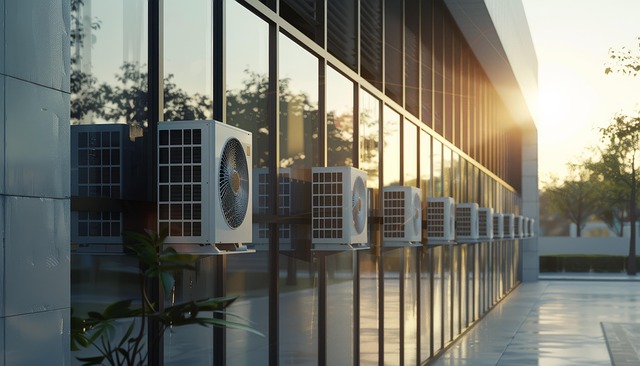In today’s fast-evolving world, the HVAC industry sits at a crucial crossroads between technology advancement and public policy objectives. Heating, ventilation, and air conditioning systems are no longer just about comfort; they now play a key role in energy conservation, environmental protection, and sustainable living. As governments push for greener standards, HVAC companies find themselves at the center of this transformation.
Public policies focusing on energy efficiency, carbon reduction, and clean technologies directly influence how HVAC businesses operate and innovate. Companies that embrace this shift stand to benefit not only from compliance but also from leadership roles in an industry moving toward sustainability. This growing relationship between policy and industry innovation underscores the importance of proactive action rather than reactive adjustment.
Consumers today are also more aware of how public policy shapes the products and services available to them. They often look for companies that align with modern environmental and energy standards. HVAC businesses that highlight their commitment to sustainable practices and public goals can build stronger trust with their customer base while contributing to long-term positive change.
Government Regulations Shaping the HVAC Industry
Environmental regulations have been instrumental in encouraging HVAC companies to produce more energy-efficient equipment. Standards like the Department of Energy’s minimum efficiency ratings for HVAC systems have forced manufacturers and service providers to reimagine traditional approaches. Meeting these guidelines requires investing in research, adopting advanced technologies, and delivering greener solutions to consumers.
According to Kyzar Air Conditioning, as state and federal policies continue to evolve, HVAC companies must stay informed and adaptable. Waiting for mandates to roll out is no longer an option; instead, industry leaders are often ahead of the curve, anticipating changes and preparing accordingly. This proactive mindset enables businesses to minimize disruption while ensuring full compliance with future regulations.
Beyond meeting basic compliance, some HVAC companies are taking it a step further by working with policymakers to shape new standards. By providing real-world insights and technical expertise, they help create regulations that are both ambitious and achievable. This collaboration benefits the entire industry by ensuring that policies are practical, forward-thinking, and beneficial for everyone involved.
Technological Advancements Driven by Policy Demands
Policy-driven goals have accelerated the integration of smart technologies into HVAC systems. Intelligent thermostats, sensor-based ventilation, and automated climate control are now commonplace, offering significant energy savings while meeting stricter energy codes. HVAC companies that invest in these innovations are responding not only to consumer demand but also to the broader push for sustainable infrastructure.
Moreover, incentives for adopting eco-friendly systems, such as tax breaks and grant programs, provide further motivation for companies to evolve. By designing and installing systems that meet or exceed policy-driven benchmarks, HVAC professionals strengthen their market position and contribute to broader public goals. The collaboration between industry innovation and public mandates forms a critical path toward cleaner, smarter living spaces.
In addition, technological advancements are enabling HVAC systems to self-monitor for maintenance needs, dramatically reducing downtime and increasing system longevity. Predictive maintenance technology alerts homeowners and technicians before problems arise, saving money on costly repairs and minimizing energy waste. This cutting-edge innovation reflects a future where HVAC systems are more intelligent, efficient, and environmentally responsible.
Sustainability as a Shared Responsibility
Sustainability efforts require cooperation between HVAC companies, policymakers, and consumers alike. As climate change concerns become more urgent, the need for energy-efficient and low-emission systems grows stronger. HVAC businesses that prioritize sustainability not only comply with regulations but also answer the broader call for environmental responsibility.
In addition, education plays a pivotal role in strengthening this shared mission. HVAC companies can lead the conversation by informing customers about the benefits of energy-efficient systems and offering solutions tailored to current environmental standards. This partnership between service providers and their clients helps bridge the gap between policy intentions and real-world results, turning mandates into measurable improvements.
A collaborative mindset ensures that environmental goals are not viewed as burdens but as shared victories. When HVAC companies, governments, and communities work together toward sustainable targets, the outcome is a stronger, healthier, and more resilient environment. Encouraging this type of cooperation fosters a sense of collective purpose that extends beyond compliance into long-term positive impact.
Economic Opportunities Born from Policy Shifts
Shifts in public policy open new economic opportunities for forward-thinking HVAC companies. Demand for technicians trained in high-efficiency systems and green technologies continues to rise. Companies willing to invest in workforce development programs stand to benefit from a growing need for specialized skills tied directly to energy regulations and environmental priorities.
Furthermore, policy incentives encourage HVAC businesses to diversify their offerings. Services such as energy audits, system retrofitting, and smart technology integration are becoming standard practice. HVAC companies that expand their service lines to include these emerging needs enhance their competitiveness while helping communities achieve public policy objectives centered on sustainability and efficiency.
Policy-driven innovation is also fostering new partnerships between HVAC companies and other sectors such as construction, real estate, and renewable energy. These cross-industry collaborations open doors for larger projects, greater resource sharing, and a stronger collective push toward meeting public goals. Companies that seize these partnership opportunities position themselves for leadership in a rapidly changing economic landscape.
Conclusion: Forging a Future Together
The future of HVAC lies at the intersection of technological innovation and public policy alignment. Companies that recognize the importance of adapting to government regulations while championing sustainable practices will not only survive but thrive in a rapidly changing world. Meeting the environmental and energy demands of the future requires strategic thinking, investment in innovation, and a commitment to continuous improvement.
By embracing policy-driven change, HVAC companies can position themselves as leaders in both market innovation and social responsibility. The collaboration between public policy goals and private-sector ingenuity ensures that homes, businesses, and entire communities move toward a cleaner, more sustainable future. HVAC companies have a pivotal role to play, and the time to lead is now.






Recent Comments